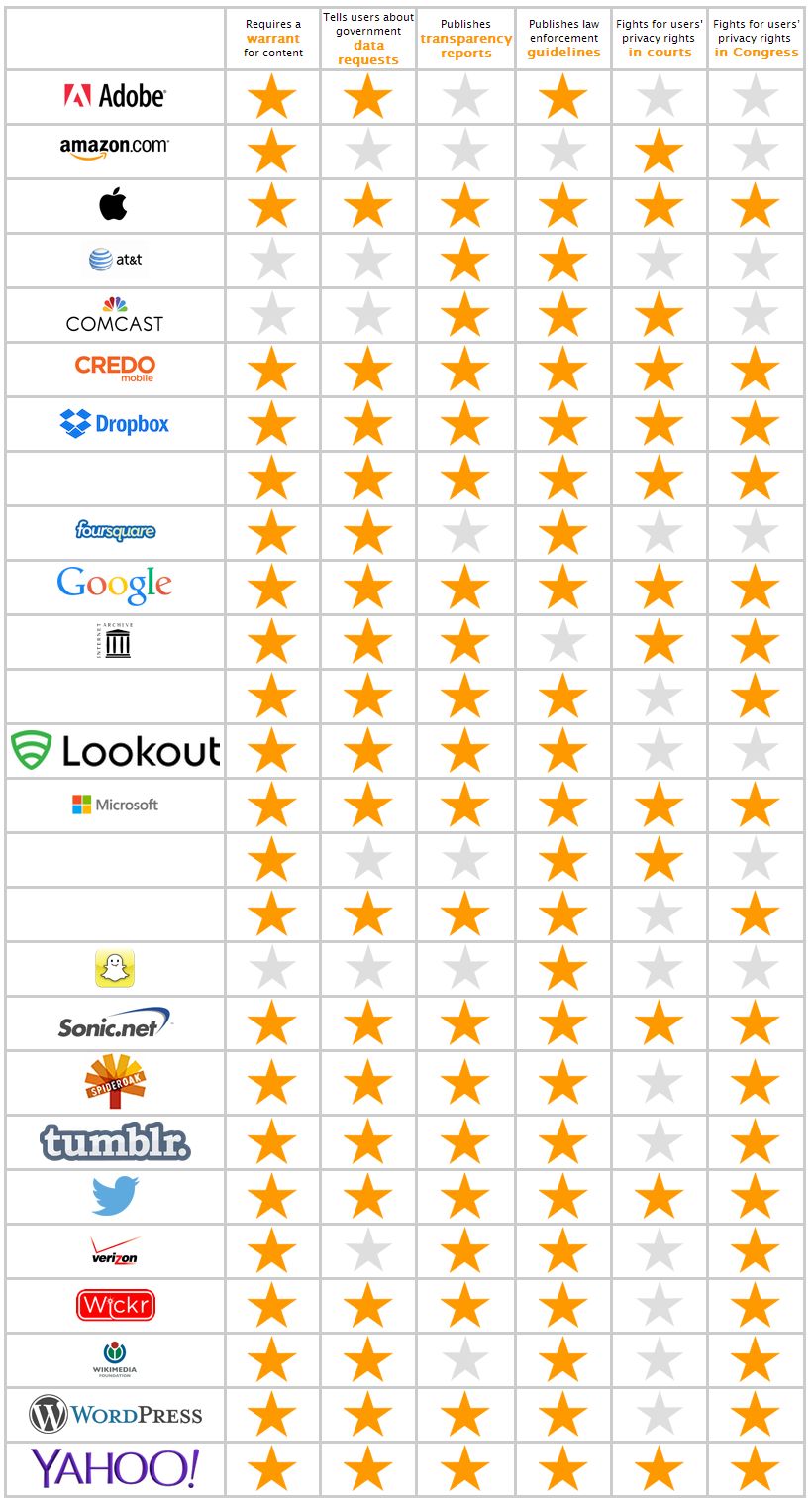These days one-fourth of our life is spent online. The internet knows more about us than our parents. Our passwords, spouse’s names, flings, bank details and everything that is to be known is known (or, rather stored) online. These online data storage has made our life convenient in many ways, but have we ever stopped for a beat and wondered what if these crucial data were easily accessible by an individual or a group of individuals with not so good intent? What if the high and mighty government itself is stalking us? Ah! That’s unlikely to happen, right? Like these sites state a lot of privacy mumbo-jumbo in fine lines. Well, that is there, but how true are these words? Who tests the credibility of these legal argots? Who makes sure that these details remain the way they are meant to be- that is a secret?
Electronic Frontier Foundation has been known for defending the virtual rights of a common man in the virtual world for quite some time now. Let’s call them the EFF for convenience. The EFF has yet again played its role as a superhero and has published a report which unveils the facade of select sites and their so called privacy report in which we’ve had unwavering trust since the beginning of times. But when our heart is ready to take a fall, a ray of hope pierces this gloomy time and the name of sites which have been true to their words throughout rises within the peripheral of our vision.

Due to the ongoing tussle between the Government and the virtual residents in the United States of America this report was conceived. But, this doesn’t entail that this is a common place occurrence in the States and we have nothing to worry about in the far east. This is a common place occurrence in each and every nation and it is time to borrow a leaf from the book of the United States of America and prepare ourselves against the unnecessarily overt interference in our virtual lives by our Government.
So, EFF warded off the unwanted interference of Government in the US? I wish that were the case, but all it did was shed some light on companies and their relation with the Government. Knowing which the people can be more careful with their details which they are ready to share online at the sight of an old trustworthy (so-called) site!
Base on the following criteria 26 companies and their sites were graded. These companies included the likes of Yahoo, Facebook, SnapChat, myspace, Linkedin, Google, Foursquare and many more. The criteria were-
- Requires a warrant for content.
- Tell users about Government data request.
- Publishes transparency report.
- Publishes Law enforcement guidelines.
- Fights for user privacy rights in courts.
- Fights for user privacy rights in Congress.
And the results were shocking! Only 9 of 26 received a tick in each of the above mentioned criterion. These honest sites were-
- Yahoo
- Sonic.net
- Microsoft
- Dropbox
- Credo mobile
- Apple
And the runner-ups were-
- Internet Archive
- Spideroak
- Tumblr.
- Wickr
- WordPress
And the losers were –
- Adobe,
- amazon.com,
- at&t,
- Comcast,
- foursquare,
- Lookout,
- myspace,
- snapchat,
- Verizon,
- Wikimedia
Winners like Apple and Yahoo were at the bottom of this list a few years ago. It seems they were the only one who understood the importance of being trustworthy and worked their way to the top of the list.
As for us, let’s be on guards and share prudently!


